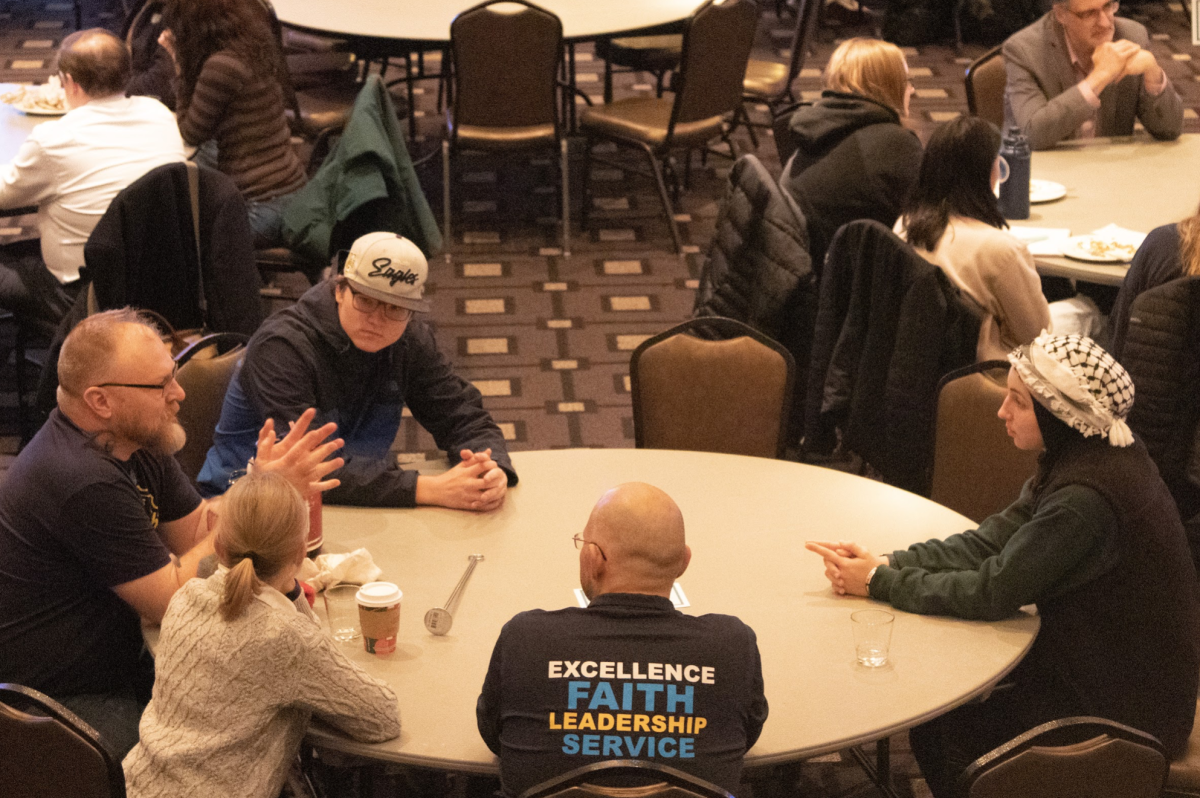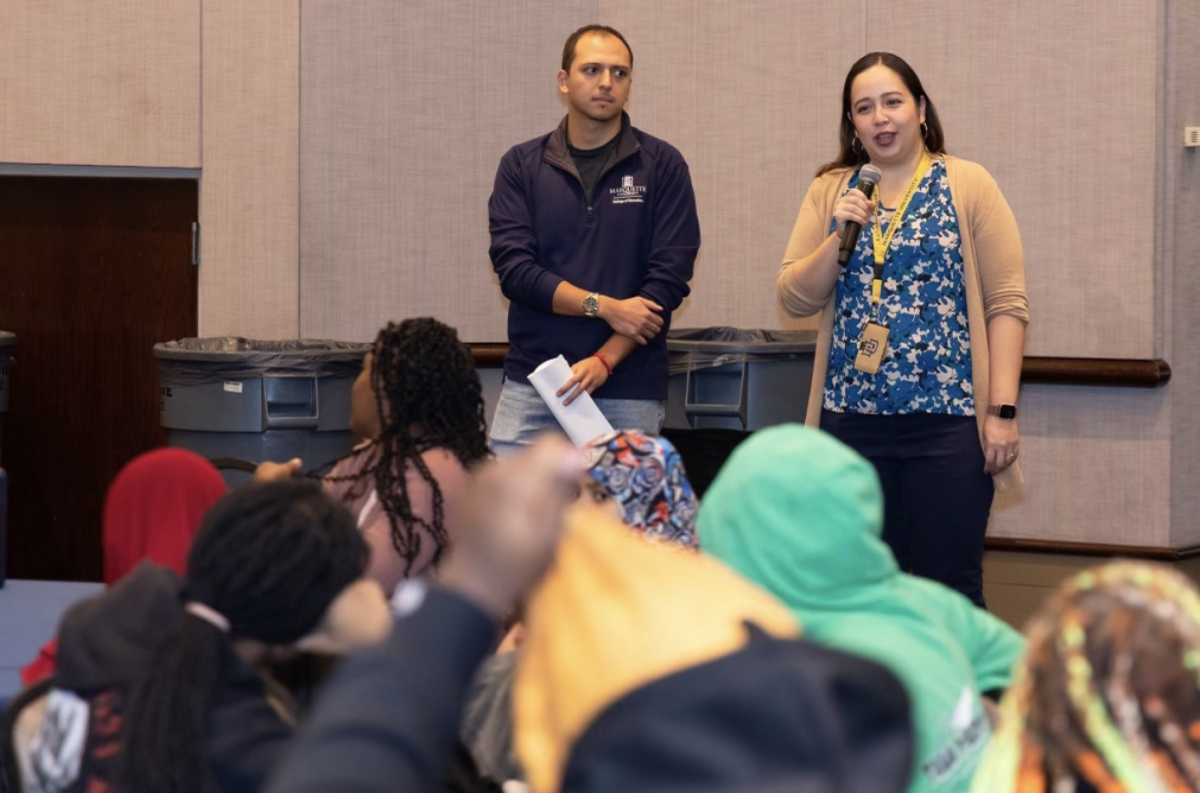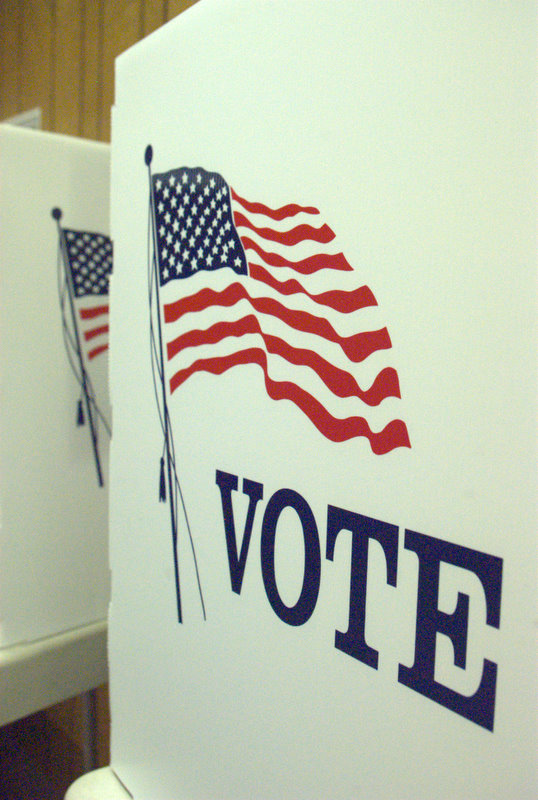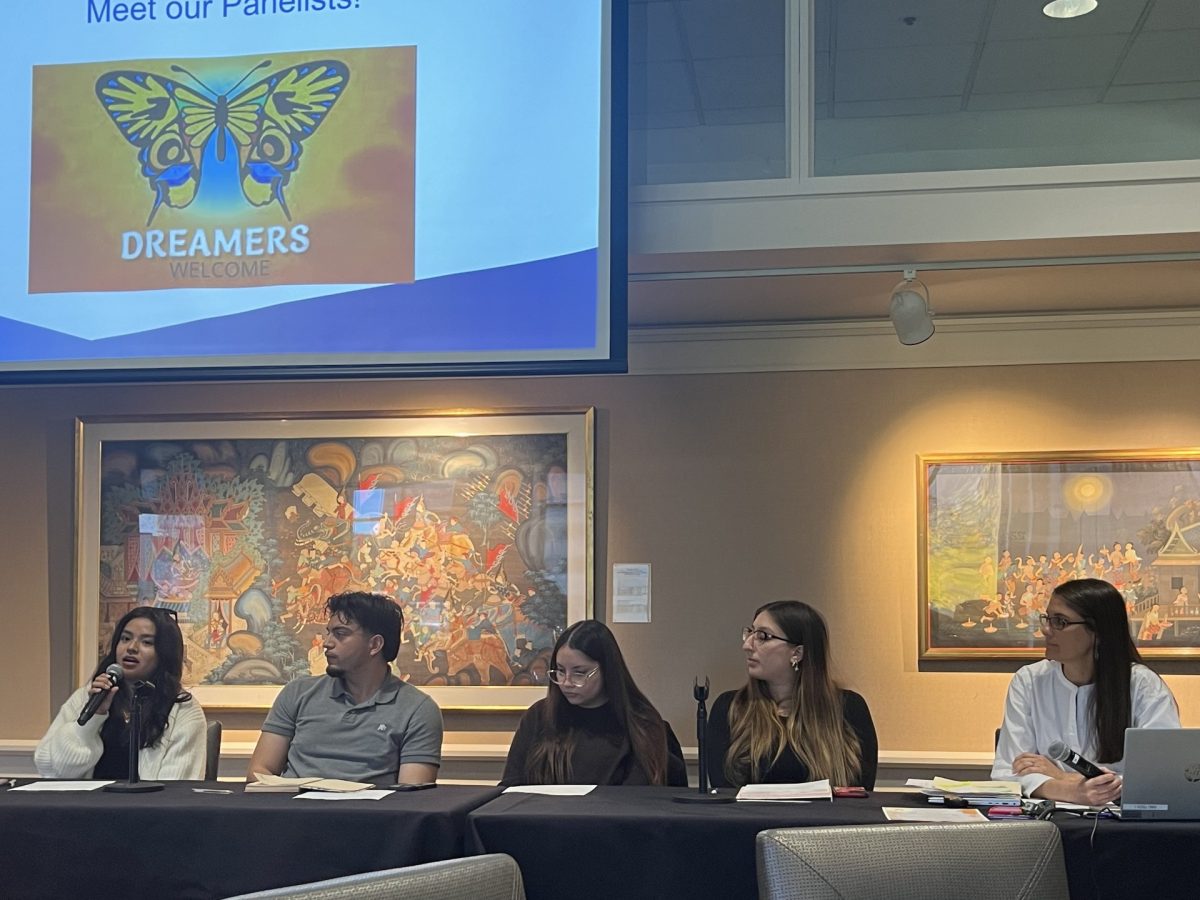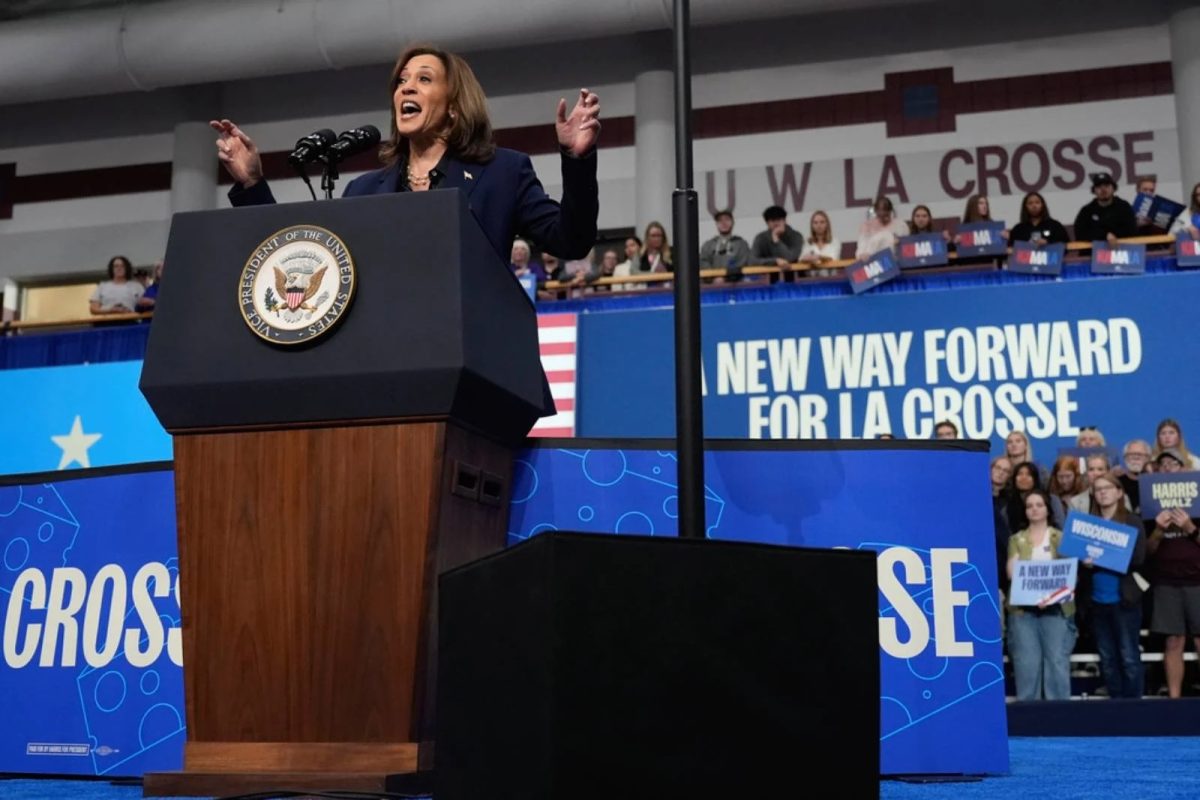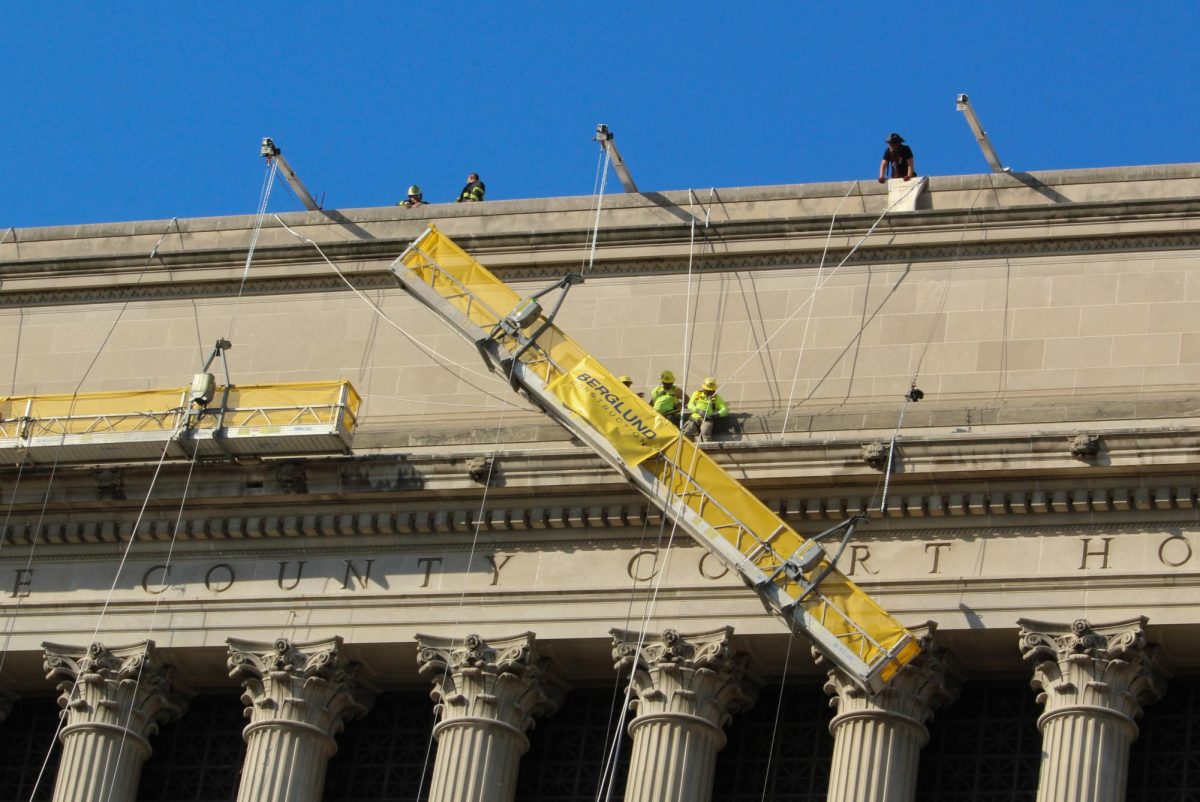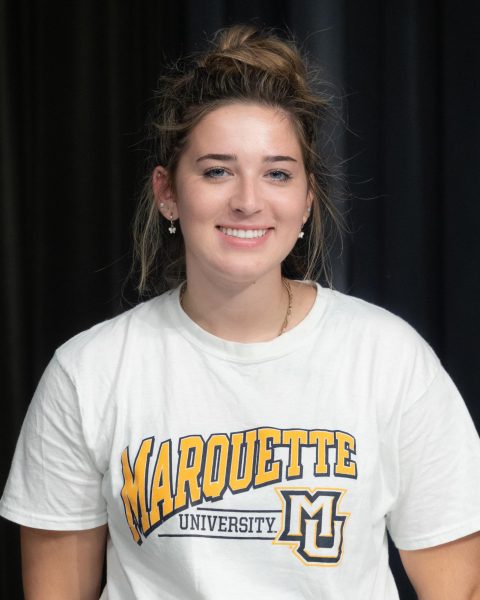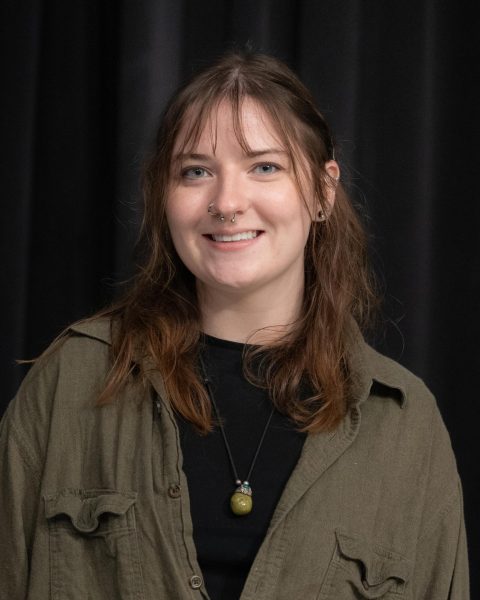As a university, Marquette academics want to find ways to educate students about what is going on in the world. To start this, around 60 students, faculty and members of the Marquette community gathered in the Alumni Memorial Union Nov. 29 to analyze and discuss Ben Loeterman’s documentary “1913: Seeds of Conflict.” After the film’s conclusion, civil discussion broke out between tables.
The documentary explores the rise of nationalism throughout the Middle East, specifically among the Jewish and Palestinian populations. It provides historical insight into events that transformed history and how the conflict that stems from Israeli Jews and Palestinian Arabs wanting the same land escalated.
The film screening and discussion was organized by Conor Kelly, a faculty member in the department of theology and hosted by Marquette Core Curriculum, the Division of Student Affairs and the College of Arts & Sciences.
Kelly said a group of people, including those in the Marquette Core Curriculum, brainstormed ways to respond to students‘ needs while also thinking of ways to respond academically as a university.
“We do have this responsibility to truly understand the world around us and then maybe springboard into what we still have to learn as a community today,” Kelly said. “We were interested in a film that would allow us to explore some of the deeper historical contexts, and the nice thing about this film is that it examines the rise of nationalism.”
Kelly said the film features historical context, beginning in 1913, to help viewers understand why the violence seen today is occurring.
In 1948, Israel declared independence, which separated the land into one Arab independent state and one Jewish independent state. In 1967, the Arab-Israeli War broke out. When this occurred, Israel took control of the Gaza Strip, Sinai, the West Bank and Palestinian East Jerusalem and conflict continued to ensue.
Palestine was one of the territories placed under United Kingdom administration in 1922. The other terrorities territories eventually became independent states, except for Palestine. A British mandate was signed that supported Palestine being a home for the Jewish people.
“I really hope that [the film] helps us as a community, and as individuals to think about what we can do to learn more, to kind of open us up to the places we still need to learn and the things we still want to know more about, so that we’re positioned well to continue a dialogue together,” Kelly said.
Luqman Waheeduddin, a senior in the College of Arts & Sciences, said he came into the screening with an open mind.
“It was interesting to see a further perspective, like further down the road. We usually focus after 1948, but before that is important too,” Waheeduddin said.
Rosie Stone, a sophomore in the College of Arts & Sciences, said she attended the screening because she did not really know much about the history between Israel and Palestine before the start of the war. She said the background information of why the war started is vital to understanding recent events.
“Something I mentioned in the discussion was how it almost feels as as if one should choose a side, when we don’t even know the history, yet our compassion should not be limited to the side who can prove more pain,” Stone said.
For Stone, the movie provided a strong background to understand where the conflict originated from.
“I thought the discussion was the most rewarding part of the event. I had a lovely discussion with students and faculty members on just trying to really grasp why this war is happening, ” Stone said. “I am sure I am not the only person that is overwhelmed by the news of the war and getting to learn from a non-biased and factual source is key. I do wish we talked more about the recent events and how we can further maintain peace on campus, but knowledge is power, and I encourage everyone to watch the film.”
This story was written by Trinity Zapotocky. She can be reached at [email protected]

